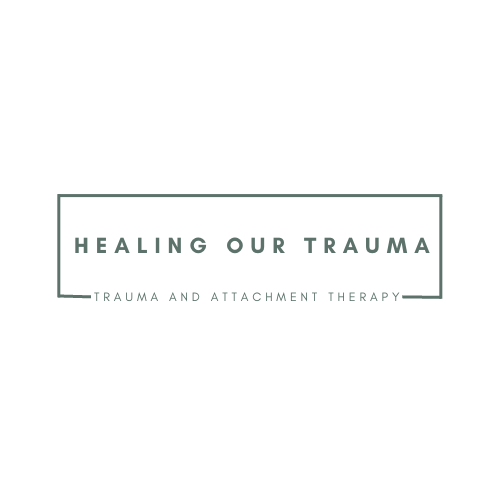Post Traumatic Stress Disorder
Similar to PTSD, ASD is characterized by symptoms such as anxiety, dissociation, nightmares, and intrusive thoughts. However, ASD occurs within the first month after a traumatic event and may resolve on its own or develop into PTSD. If you're looking for a trauma therapist near me you have come to the right place.
PTSD Symptoms
A qualified mental health professional should make a diagnosis of post traumatic stress disorder after conducting a thorough assessment of symptoms and their impact on functioning. While acute post traumatic stress disorder may manifest with other symptoms, the following are the most prevalent.
Intrusive Memories
Individuals with PTSD may experience recurrent and distressing memories of the traumatic event. This can include flashbacks, nightmares, or intrusive thoughts that disrupt daily life.
Avoidance
People with PTSD often go to great lengths to avoid reminders of the traumatic event. This may involve avoiding certain places, activities, or people associated with the trauma.
Negative Changes in Thinking and Mood
PTSD can lead to negative changes in a person's thoughts and mood. This may manifest as persistent negative beliefs about oneself or others, feelings of guilt or shame, difficulty experiencing positive emotions, and a sense of detachment from others.
Hyperarousal
Individuals with PTSD may experience heightened arousal, leading to increased irritability, difficulty sleeping, exaggerated startle responses, and a constant feeling of being on edge or in danger.
Post Traumatic Stress Disorder Treatment
There are various therapeutic approaches designed to address different aspects of ptsd. The below treatments are just a few of the therapies to treat ptsd available, each offering unique strategies to support individuals on their journey to improved mental health.
EMDR Treatment
EMDR, or Eye Movement Desensitization and Reprocessing, is a powerful and evidence-based ptsd treatment approach that helps individuals process and heal from trauma.
Internal Family Systems/Parts Work
IFS and Parts Work, delves into an individual's psyche, exploring internal "parts" or sub-personalities. The goal is to facilitate dialogue and integration among these parts under the guidance of the core, compassionate "Self." Through visualization and introspection, clients work towards harmony, healing trauma, and achieving a more balanced and unified sense of self. IFS promotes personal growth, self-awareness, and addressing trauma, emotional regulation, and self-empowerment.
Mindfulness-based Therapy
Mindfulness-based treatment approach focuses on cultivating awareness and presence to help individuals and couples navigate through life's challenges. Through mindfulness practices, we aim to provide a safe and supportive space for healing and growth.
Post Traumatic Stress Disorder FAQs
Have questions? We’re here to help.
-
What causes PTSD?
Post-traumatic stress disorder, or PTSD, can be caused by a variety of traumatic events. These events often involve experiences that threaten one's safety or life, such as war, natural disasters, physical assault, or car accidents. After experiencing such an event, individuals may develop symptoms of PTSD, including recurring nightmares and flashbacks, intense fear or anxiety, difficulty sleeping, and avoiding reminders of the trauma. It is important to remember that everyone responds to trauma differently, and what may cause PTSD in one person may not have the same effect on another.
-
How does PTSD affect the brain and body?
PTSD has a profound impact on both the brain and the body. When a person experiences trauma, their brain's natural response to danger is triggered, leading to heightened arousal and a constant state of perceived threat. This can result in changes in brain structures and functions, such as the amygdala and prefrontal cortex, which play crucial roles in emotional regulation and memory processing.
Additionally, PTSD can affect the body's stress response system, leading to an overactive fight-or-flight response. This can cause physical symptoms like increased heart rate, sweating, and hypervigilance.
-
Is full recovery from PTSD possible?
Full recovery from PTSD is achievable through proper treatment and support. Each person's journey is unique, but with effective strategies and social connections, individuals can live fulfilling lives after PTSD. Seeking professional help and finding a strong support system are crucial for the recovery process.
At Healing Our Trauma we know that you want to be on a path to recovery and restoration. In order to do that, you need to address your underlying, unmet needs. The problem is most people don't know where to turn to or how to start which makes you feel frustrated and stuck. This leads some to want to quit. We believe in your resilience and the possibility of reclaiming a life marked by strength, growth, and renewed hope. We understand that overcoming trauma is a journey that requires personalized care, empathy, and a safe space for healing.
So, schedule a free evaluation. And in the meantime, sign-up for our Support Newsletter.
Together, we can navigate this journey toward healing, ensuring that you not only survive but thrive in the aftermath of trauma.
Contact Us
816-200-7909
Contact Us
We will get back to you as soon as possible
Please try again later
Insurance Accepted: Aetna (Missouri Only)
Forms of Payment: Cash, Check, Visa, Mastercard, Discover, American Express
Our address
Email: nadirah@healingtraumakc.com
Tel: 816-200-7909
12401 E 43rd St S, Independence, MO 64055, United States of America
Work Hours
- Mon - Fri
- -
- Sat - Sun
- Closed

